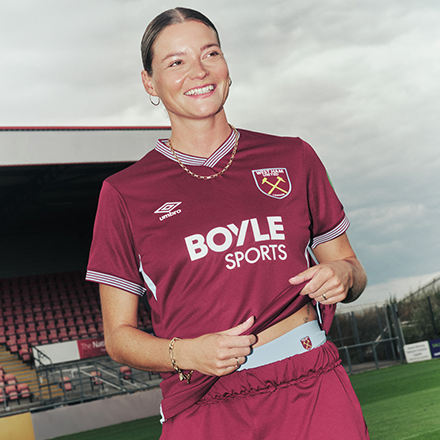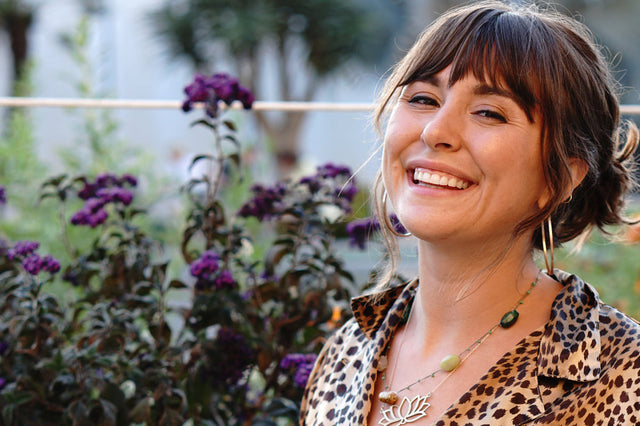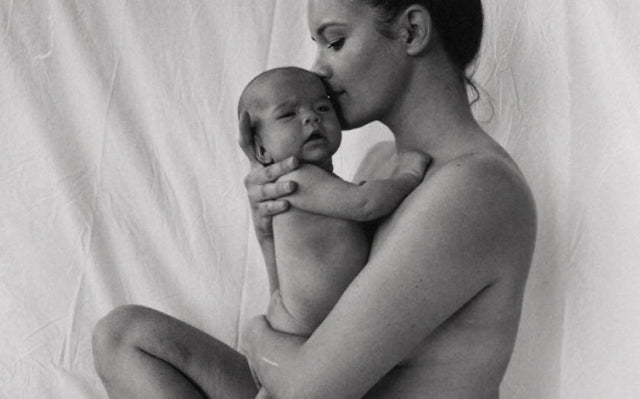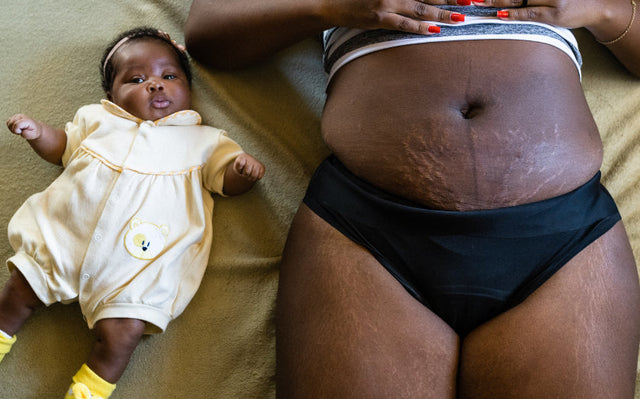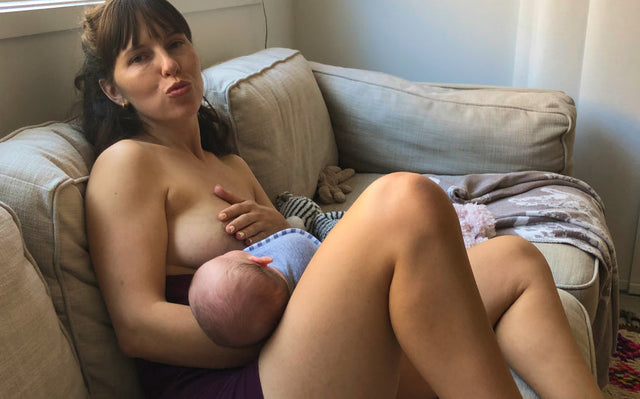We sat down to have a chat with Natasha Weiss, a doula based in California. Natasha’s passion for reproductive health began at age fourteen, when she was present for the birth of her youngest sister. Her incredible experiences as a birth doula, has given her hands on insight into the magical realm of birth, pregnancy, and all things in between. Her role as a birth worker, is her way of serving as an activist. She also uses writing as a key educational tool for creating change in how we view reproductive health as a whole.
Trigger warning: some answers deal with difficult births and might upset some people.
Q1. So, what’s a doula?
The word doula has Greek origins, and loosely translated means “To serve women”. My personal definition of a doula is “Someone who provides support to people during huge life transitions.”
Different from midwives, doulas are not medical professionals. We provide emotional, educational, spiritual, and physical support to families during pregnancy, labor, and birth.
While the standard notion of a doula is in the context of birth, my work (and that of others’) also expands to other areas in the reproductive cycle including postpartum help, abortion, miscarriage, stillbirth, medical termination, queer families, adoption, surrogacy, and so on.
Q2. Do you need any formal training? Is there a doula organisation?
I’m based in California, where currently it’s not required to be certified to practice as a doula. Nor is it in any other state in the U.S. There are multiple doula organisations that provide certifications, some more “prominent” than others.
The topic of certification is a bit controversial, and can be exclusionary to many people- especially those in marginalised communities. There are plenty of organisations that provide incredible education outside of these main ones, just without the fancy acronym next to your name.
NB: In Australia there are lots of training services and support organisations for doula’s, you need a certificate and to attend a certain number of births before you can practice.
Q3. How do you support women during the birth?
So many ways! Each birth is different, and you never quite know what to expect.
First and foremost, doulas are there to hold space. While this is a somewhat esoteric phrase, it’s palpable when it’s happening. To hold space is essentially to hold the energetic container of the room in a grounded and balanced way.
We also have more practical tools we use to help ease the discomfort of labor like hands on “counter pressure” techniques, acupressure, massage, aromatherapy, helping the pregnant person switching positions or use hydrotherapy (bath or shower), making sure they are hydrated and eating (if they’re able to), the list goes on!
Q4. How do you work with the partner during birth?
If their partner or family members are in the room, we’re watching to make sure they are emotionally supported, hydrated and fed, and have rested if it’s a long birth.
One of my favourite things to see in births is when the partner is right there with the birthing person the whole time. They’re the ones doing the hands on techniques, or we’re at least tag teaming. Sometimes I just show them what to do, and they run with it. It’s awesome!
As a new doula, you want to do everything, but over time, you learn that sitting back and stepping in where needed can be much more impactful.
Q5. Are doctors/midwives happy to work with you?
This is a tricky area. For the most part, yes, absolutely. The benefits of having a doula, specifically in the hospital, is that we’re able to provide continuous care while medical professionals often have a bunch of other patients and paperwork they’re attending to.
Honestly, the state of birth in many countries, but especially in the U.S., can be heartbreaking and full of trauma and tragedy. There’s a history of abuse of power, and not listening to women that results in unfavourable, sometimes horrific outcomes. Doulas provide a buffer to that. So in the cases of medical providers that are not practicing client-centered care - they feel threatened. All the more reason we need doulas.
Q6. What are your fees?
Fees for doulas range anywhere from free to upwards of US$5,000. It depends on the area, experience, and the clientele. While this may seem outrageously expensive, you have to keep in mind that you’re not just paying for the time the doula is at the birth. Doulas are on call for months at a time, they can only take on a few births at a time, and they have the standard costs of operating their own small business.
A lot of my experience has been volunteer based. My other job is as a reproductive health care writer, which means I have other income coming in. I love this balance because it gives me the freedom to provide support to people who may not have the means to pay for it. These are often the people that need it most. I also provide abortion support, which I do pro-bono.
When I do have paid births, I work on a sliding scale, and they are usually somewhere in the US$500-$1,200 range.
Q7. Why did you become a doula?
The short answer, is it’s my life’s calling. I’ve had so many wild, transcendental experiences that have pushed me on this path. I had the honour of watching my youngest sister being born when I was 14. That watered the seed that was already there.
Birth workers are activists, plain and (not so) simple. There are so many reproductive injustices being committed every moment. So much pain and trauma, in what’s one of the most beautiful gifts of being human. I believe in choice. Being a doula and a writer gives me the platform to share knowledge that expands people's choices. Education is the first step.
It’s also giving me experience as I pursue my further goal of becoming a midwife.
Q8. Have you experienced difficult births? How do you respond?
Yes, unfortunately quite a few. I have supported people through stillbirth, and other situations where things were long and exhausting, or just didn’t go as planned.
One of my superpowers, and the reason I’m in this work, is that I’m able to maintain composure and strength through the most difficult situations. It’s important not to minimise my client’s experience, or give false expectations, yet at the same time stay positive and hopeful. We get attached to our clients, and I totally get emotional at times - this is not easy work.
While birth can be beautiful and blissful, and I always hope it is, the reality is that that’s not always the case. I’m not here for an easy ride, I’m here for the grit, for the depth of experiences.
After any birth, but especially after difficult ones, I make sure to reach out to my community, to utilise all my self care tools, and to give my space to process, and sometimes grieve.
Q9. Do you attend home births?
Yes, absolutely! As I mentioned, my goal is to become a midwife - one that works outside of the hospital. Which means in home or at freestanding birth centres that aren’t connected to a hospital
Q10. How far along the pregnancy does your support start? Do you have home visits prior to the birth or offer additional services?
A lot of my volunteer clients I actually don’t meet until I show up at the birth. If I do meet them beforehand, it just depends on when they hire me, and when the baby is born of course!
Ideally they take me on a few months before their “due date” where we’re able to have 2-3 prenatal appointments. During these we’ll go over birth education, what their goals and preferences are for the birth, and just get to know each other better.
At the moment, the only other service I offer is Reiki/energetic healing. I have my hands pretty full already. Full time doulas offer all sorts of skill based services like prenatal yoga, placenta encapsulation, prenatal massage, and plenty more.
Q11. Do you help after the birth?
After the birth, I do check in through the phone and with a couple home visits. For further help with healing and postpartum support, some families hire a postpartum doula. Some doulas do both birth and postpartum support, I wish I had more time to do this - I love it.
I think people really underestimate just how much having someone else there can help in the tender postpartum time. Which is why postpartum doulas rock!
Q12. What is the most commonly asked question when you tell people you are a doula?
See question one...most people don’t know what it is! Or they say “So you’re a midwife right?”. I’m so happy to tell people all about what doulas do. The more we get the word out there, the more people will have the support they need during their birth journey.
Modibodi is here to help mothers throughout the birth process- before, during and after. We have a maternity range that is designed to suit the changing body and catch those surprise leaks. We hope to make the experience as manageable and seamless as possible, letting you get on with your daily routine.
Check out our range here:
https://www.modibodi.com/collections/maternity




